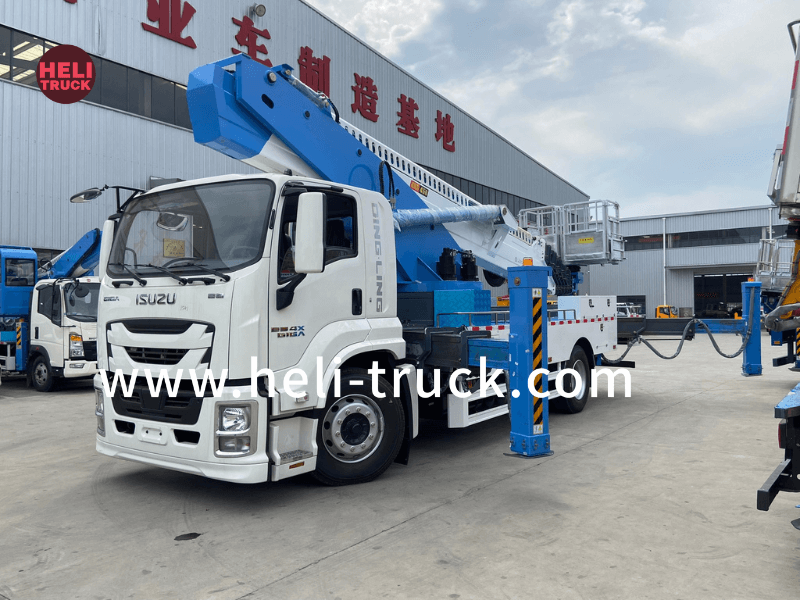Introduction
Vacuum trucks play a crucial role in waste management and environmental protection by safely removing and transporting various types of waste materials. These specialized vehicles are equipped with powerful vacuum systems that can efficiently suck up liquids, sludges, and solids from a wide range of sources, including industrial sites, construction projects, and municipal facilities. However, the proper disposal of the waste collected by vacuum trucks is equally important to prevent environmental contamination and ensure public health and safety.
In this article, we will explore the importance of vacuum truck waste disposal certification in ensuring that waste materials are handled, transported, and disposed of in a safe and environmentally responsible manner. We will discuss the various types of waste that vacuum trucks can collect, the potential risks associated with improper waste disposal, and the certification requirements that help to mitigate these risks.
Types of Waste Collected by Vacuum Trucks
Vacuum trucks are versatile vehicles that can handle a wide variety of waste materials, including but not limited to:
1. Liquid Waste: Vacuum trucks are commonly used to collect and transport liquid waste such as sewage, wastewater, and industrial effluents. These liquids can be hazardous and require proper handling to prevent spills and leaks.
2. Sludge: Vacuum trucks are also capable of removing sludges from tanks, pits, and other containment structures. Sludges can contain a mixture of solids, liquids, and semi-solids, making them challenging to handle and dispose of.
3. Solid Waste: Some vacuum trucks are equipped with high-pressure water jets and cutting tools to break up and remove solid waste materials such as rocks, concrete, and debris. vacuum trucks for sale of solid waste is essential to avoid environmental contamination.
4. Hazardous Waste: Vacuum trucks may be used to collect hazardous waste materials, including chemicals, toxins, and other harmful substances. Specialized equipment and training are required to handle and dispose of hazardous waste safely.
Risks of Improper Waste Disposal
Improper disposal of waste collected by vacuum trucks can have serious consequences for the environment, public health, and safety. Some of the potential risks associated with improper waste disposal include:
1. Water Contamination: Liquid waste that is improperly disposed of can seep into the ground and contaminate groundwater sources, posing a risk to drinking water supplies and aquatic ecosystems.
2. Soil Contamination: Solid and sludge waste materials that are not properly disposed of can leach harmful chemicals and pollutants into the soil, affecting plant and animal life in the area.

3. Air Pollution: Some waste materials, especially hazardous substances, can release toxic fumes and gases into the air if not handled and disposed of correctly. This can pose a risk to human health and the environment.
4. Regulatory Non-Compliance: Improper waste disposal practices can lead to violations of environmental regulations and laws, resulting in fines, penalties, and legal liabilities for the responsible parties.
Certification Requirements for Vacuum Truck Waste Disposal
To mitigate the risks associated with improper waste disposal and ensure that waste materials are handled safely and responsibly, certification requirements have been established for vacuum truck operators and waste disposal facilities. These certification programs typically include:
1. Operator Training and Licensing: Vacuum truck operators are required to undergo comprehensive training on the safe operation of vacuum trucks, proper waste handling procedures, and emergency response protocols. Once training is completed, operators may need to pass a licensing exam to demonstrate their knowledge and competency.
2. Waste Management Certification: Waste disposal facilities that receive waste materials from vacuum trucks must obtain certification to demonstrate compliance with environmental regulations and best practices for waste management. This certification may involve regular inspections, audits, and reporting requirements to ensure that waste materials are being handled and disposed of correctly.
3. Hazardous Materials Handling Certification: Vacuum trucks that transport hazardous waste materials are subject to additional certification requirements to ensure the safe handling, storage, and disposal of these materials. Operators must receive specialized training on handling hazardous substances and comply with strict safety protocols to prevent accidents and spills.
4. Environmental Impact Assessment: Before disposing of waste materials, vacuum truck operators may be required to conduct an environmental impact assessment to evaluate the potential risks and consequences of their disposal practices. This assessment helps to identify areas of concern and develop mitigation measures to protect the environment and public health.
Benefits of Certification for Vacuum Truck Waste Disposal
Certification for vacuum truck waste disposal offers a range of benefits for operators, waste disposal facilities, regulators, and the general public. Some of the key benefits include:
1. Environmental Protection: Certification requirements help to ensure that waste materials are handled, transported, and disposed of in a manner that minimizes environmental impact and prevents pollution of air, water, and soil.
2. Public Health and Safety: By promoting proper waste handling practices and emergency response procedures, certification programs help to protect the health and safety of workers, communities, and the general public.
3. Regulatory Compliance: Certification helps operators and facilities stay informed about the latest environmental regulations and best practices for waste management, reducing the risk of non-compliance and associated penalties.
4. Professionalism and Credibility: Certification demonstrates a commitment to excellence in waste management practices and can enhance the reputation and credibility of operators and facilities in the industry.
Conclusion
Vacuum trucks play a vital role in waste management and environmental protection by safely collecting and transporting a wide range of waste materials. However, the proper disposal of waste collected by vacuum trucks is equally important to prevent environmental contamination and ensure public health and safety. Certification requirements for vacuum truck waste disposal help to mitigate the risks associated with improper waste handling and ensure that waste materials are managed in a safe and environmentally responsible manner. By investing in training, certification, and best practices for waste management, vacuum truck operators and waste disposal facilities can contribute to a cleaner, healthier, and more sustainable environment for future generations.
